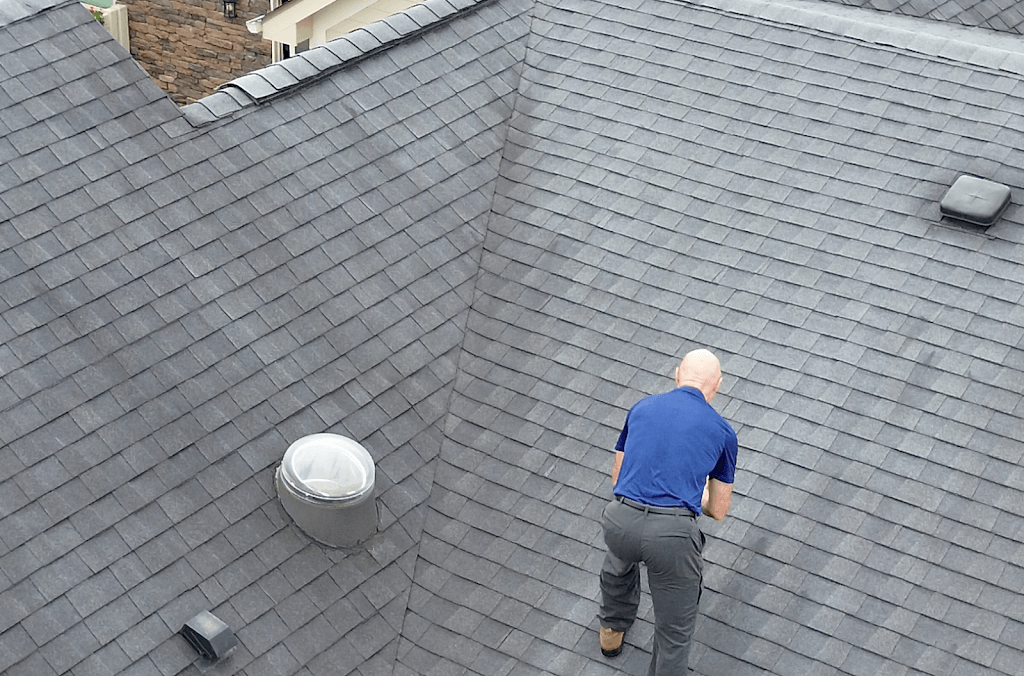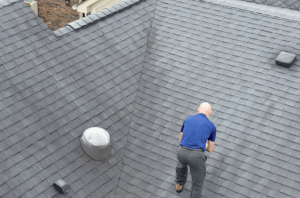What are Knoxville homes’ most common defects? Home inspections are a vital part of the home-buying process in Knoxville, TN, providing buyers with valuable insights into a property’s condition. In a recent conversation, I was surprised at a comment made by an insurance adjustor who had worked in New York State and Houston, TX. According to him, the quality of construction in E. TN is far below the standards in the other areas he has worked. He cited a few reasons, but the main point is that, while most homes are in decent shape, even well-maintained properties are likely to have more than their share of defects. In this article, we’ll explore some of the most common defects found during home inspections in Knoxville, helping buyers navigate the process with knowledge and confidence.
Roofing Problems:
Roof issues are a regular finding in Knoxville homes’ inspections. Leaky roofs, damaged shingles, missing flashing, or poor installations are common concerns. You need to give prompt attention to prevent water damage and other structural issues.
Plumbing Leaks and Fixtures:
Plumbing leaks, drips, and water stains are among Knoxville homes’ most common defects. Inspectors check for leaks under sinks, around toilets, and in basements or crawl spaces to ensure the plumbing system is working as it should.
Electrical Wiring:
Home inspectors often come across electrical issues like outdated wiring, improper installations, or overloaded circuits. Professional electricians will correct electrical defects to avoid safety hazards.
HVAC System Concerns:
A quality inspector will find issues with heating, ventilation, and air conditioning (HVAC) systems. This includes problems with thermostats, ductwork, filters, or broken components. A professional HVAC contractor will resolve important issues to maintain your family’s health and comfort.
Poor Drainage and Grading:
Also among Knoxville homes’ most common defects are poor drainage and improper grading around the property that can lead to water entering basements or crawl spaces. Prevent foundation issues and water-related damage by paying attention to proper drainage. Be pro-active to avoid issues with fungal growth.
Insufficient Insulation:
Home inspectors may find insufficient or poorly installed insulation, which affects the home’s energy efficiency and comfort. Inadequate insulation leadsto higher energy bills and temperature inconsistencies. Consult an insulation contractor to keep your utility bills low.
Foundation Cracks:
Cracks in the foundation are concerning findings during inspections. While minor cracks may be normal, significant or widening cracks could indicate structural issues that require immediate attention. A structural engineer will identify severe foundation issues that could prove to be costly.
Faulty Windows and Doors:
Windows and doors that don’t operate smoothly, have broken seals, or show signs of rot or decay are common defects found during inspections.
Mold and Mildew:
Moisture issues can lead to mold and mildew growth in basements, crawl spaces, bathrooms, or other areas with high humidity. Mold presence requires professional remediation for health and safety reasons.
Exterior Siding and Trim:
Home inspectors may identify defects in the exterior siding, such as peeling paint, rot, or damage caused by pests or weather conditions.
As a homebuyer, it is important to know Knoxville homes’ most common defects so they can be managed by you and your realtor. Choose your realtor and home inspector wisely. Select professionals who have your best interests in mind. Most defects are not deal-breakers but there are some properties that should be avoided. A good realtor will help steer you away or help you negotiate repairs with the seller. Working with a reputable home inspector and having the defects explained can give you a good understanding of the property’s condition. By addressing these common defects proactively, you can ensure that your new home is a safe, comfortable, and valuable investment for years to come.



